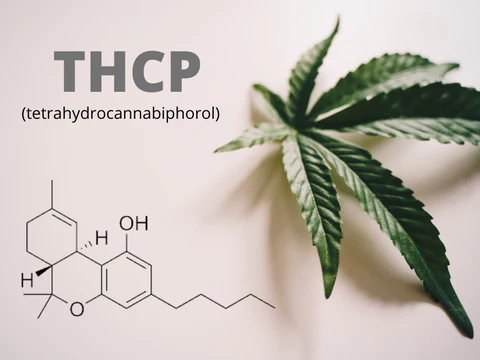As more states legalize cannabis and more people become aware of its therapeutic and recreational benefits, the cannabinoids industry continues to grow. Therefore, that means a high prospect of further deep research on cannabinoids. Among those already conducted, the 2019 study on the National Institutes of Health website is worth attention. It is reported that scientists revealed the groundbreaking cannabinoid and gave it the name THC-P.
Nowadays, this compound is very popular and highly desired. Almost everyone in the cannabis community has heard of it as the most potent cannabinoid found in the cannabis plant. That is the reason why the market is still rich with various THC-P related products that can be easily purchased at weed shop online or similar ones. But before trying out the THC-P goods, learning about the compound’s effects and the actual product assortment is crucial. This article is here to provide all this necessary information, so keep reading.
What Is THC-P Cannabinoid?
THC-P’s full name stands for delta-9-tetrahydrocannabiphorol. This compound can be naturally obtained from various cannabis plant strains. However, the extracted concentration is usually about 0.1%. It’s apparent that this amount isn’t enough for the molecule to have any value in the competitive cannabinoid market. Especially given that the plant itself must go through a number of difficult procedures in order to be grown and ready for cannabinoid extraction. For that purpose, different specialized equipment, like a centurion trimmer for cutting off the buds or high-intensity discharge lights at the flowering stage, is utilized.
For the reasons outlined above, this compound of the cannabis plant was synthesized in a lab environment. The whole process involves enzymatic reactions and the method of decarboxylation.
There haven’t been many studies done about the component to date. But according to some anecdotal reports, THCP can deliver the following effects:
- feeling more relaxed, having a better ability to focus, and experiencing a mood uplift;
- being potential sleep aid (can be employed as an insomnia treatment);
- easing the symptoms of anxiety, stress, depression, bipolar disorder, and panic attacks;
- pain alleviation (some cases reported even chronic pain potential treatment).
However, as with all cannabinoids, THC-P can also produce some adverse effects. They can include the following:
- eye redness;
- dry mouth;
- fatigue;
- nausea;
- temporary memory loss;
- anxious and paranoid conditions.
Considering that, consult your healthcare provider before ingesting any THC-P products and avoid self-medication and overconsumption. Always be careful with the amount you take, and don’t drive or use machinery before or right after taking cannabinoids.
How to Consume THCP-Infused Products Properly?
Due to the molecule’s potency, a huge variety of products infused with it are produced. The most popular ones are vapes and tinctures.
Vapes are popular due to their numerous benefits. They’re discreet and convenient in usage, maintenance, and cleaning. Moreover, the product allows for regulation of the dosage. This category of products can be classified into two groups:
- refillable and disposable (first can be recharged and used again, thus considered eco-friendly, while disposables are thrown away when empty);
- dry herb (create vapor from looseleaf tobacco or herbs) and concentrate vapes (here, waxes, oils, and other liquid materials are used).
Tinctures are liquid hemp-derived extracts produced by dissolving in oil or alcohol as a solvent. Typically, they’re suggested to be taken sublingually. This product is equipped with a dropper which allows measuring consumption amount.
Since tinctures are concentrates, their potency is much higher than that of other cannabinoid products. Moreover, they’re also a perfect choice if you want to control dosing and seek long-lasting effects. Tinctures are cost-effective and don’t cause lung damage compared to inhaling methods.
Is THCP Really Strong?
Since THCP is considered an endocannabinoid, there’s a need to look at its interaction with the ECS to reveal its psychoactive properties. ECS is the body’s endocannabinoid system, which has two types of receptors. To activate them, our body produces endocannabinoid molecules that are structurally similar to all the cannabis plant molecules, including THCP. The CB1 and CB2 receptors being activated help regulate many meaningful functions in the body.
It’s easy to understand how strong THCP is when it’s compared to THC. Both molecules’ effects on the ECS are similar, but tetrahydrocannabiphorol works on receptors 33 times more effectively. Feeling “high” can be induced when the compounds bind to the CB1 receptor. However, when some consumers struggle with experiencing it with tetrahydrocannabinol because they possess fewer CB1 receptors, THCP comes in as a perfect alternative. When it comes to the CB2 receptor, THC-P is also anywhere from five to ten times as potent as delta-9.
Bottom Line
There is still a lot left unknown about the THCP, despite the research done by the individuals who first identified it. In particular, more advanced studies need to be done to find out the exact properties of the compound and its safety plan. However, THC-P is among the most innovative cannabinoids known on the market now. The molecule’s potential that has been investigated to date makes it very likely that it’ll become a big game-changer in the cannabinoid industry.








